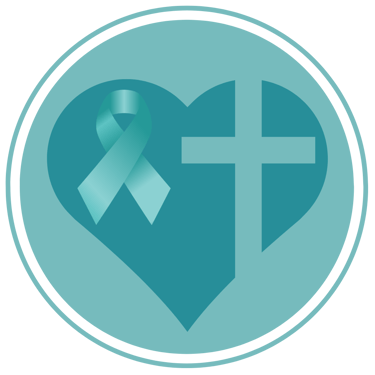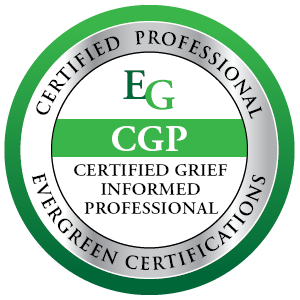Who I am & What I do | Medical Family Therapy in California
Learn more about Kimberly B. Virrueta, a licensed MFT in California who helps individuals & families cope with cancer.
Get to Know Kim
Meeting your family's needs after diagnosis.
Seeing a therapist who specializes in medical family therapy can help you & your family get the customized support you need from someone who truly understands the challenges you are facing and has the tools to help.


A serious medical diagnosis can rock your world. Suddenly, you are facing the reality of tests, scans, treatments, and not knowing what the future holds. It can feel unfair in many ways; you've taken good care of your body; you've tried to do the right things in life and be a good person; you thought that these kinds of things only happen to other people...not to you or your family.
It may be tempting to place blame on yourself or others for what's happening. You might pick apart every choice you've made in relation to your body and wonder what you did to cause this? You might search for answers in your family's health history to try and explain where this genetic vulnerability came from. If you believe in God, you might even be feeling angry at Him right now. Why did He allow this to happen? These types of questions are very common after a diagnosis. The question that I help patients & their families answer is: "What now?"
Everything Has Changed...Now What?
Even though it is the patient who was diagnosed, the entire family unit is affected. Medical family therapy can help you explore what everyone is feeling and give you the tools to manage and cope with the aftermath.
Some common concerns the patient may experience:
Shock, denial, numbness, & disbelief
Anxiety & uncertainty about the future
Fear of painful medical tests/procedures
Pondering the meaning of their life
Feeling isolated, alone, & separated from others
Feeling depression & overwhelming sadness
Grieving the loss of what was, what is, and what will be
Difficulty accepting loss of control/power in multiple areas of life
Worrying about their family, should something happen to them
Hiding feelings and/or medical facts to avoid "burdening" others
Some common concerns the patient's significant others may experience:
Shock, denial, disbelief
Pushing the patient to get multiple other opinions, hoping for a different result
Difficulty coping with the changes to family roles & rules
Feeling "stretched thin" & burned out as a caregiver to the patient
Feeling inadequate as a caregiver if the patient is suffering or not getting better
Difficulty meeting the needs of healthy family members who depend on them
Feeling torn between being with the sick family member & being at home with family
Fear about the future; inability to cope with uncertainty
Obsessing over finding "the cure" or "solution"


Assessment & Goal Setting is Step 1
Holistic point of view: My first step when meeting with patients & families is to get a better idea of how everyone is coping with the diagnosis. What are the main concerns, pain points, and difficulties that you're dealing with? How are you functioning? How are you holistically being affected by your diagnosis: physical, emotional, social/relational, spiritual, cultural, etc.? If you are receiving treatment (surgery, chemo, radiation), how are side effects impacting your mental health? If amputation or surgical resection of a tumor took place, how are you, your partner, & your family coping?
Impairment & distress: I will specifically be looking for clinical levels of depression, anxiety, and other adjustment concerns. I will also be assessing other important areas of life such as your marital/intimate partner relationship, parental role, affect on healthy siblings, the quality of your support system, and how you & your family are adapting to the diagnosis. Which areas of family functioning are causing distress? Are you experiencing conflict, emotional disconnection, or relational crisis? Are you experiencing flashbacks or other symptoms of medical trauma (PTSD)?
Strengths & resilience factors: What strengths do you and your family have that help you cope with your current challenges? How have you overcome prior challenges & difficulties together in the past? Do you have friends & family who readily jump in and help? Some other strengths I look for are high levels of optimism & hope; acceptance of reality; unconditional support of one another; having an "us against this disease" point of view; ability to resolve conflict; and an open communication style.
Setting goals for therapy: After identifying your main concerns, we will work together to help you set some short-term & long term goals. Short-term goals might be focused more on immediate relief of certain distressing symptoms, while long-term goals may include bigger picture goals for your life & relationships.


Finding Relief is Step 2
Relief for adults & teens: When concerns are found, my first goal will be to help you find relief. This might involve psychotherapy (talk therapy/counseling), family counseling, couples therapy, bibliotherapy (book recommendations), psychoeducation (information), and/or providing you with tools and coping skills to help you feel better. Sometimes, a referral to a psychiatrist or doctor for a medication evaluation may be appropriate for the patient. When talk therapy is insufficient or developmentally inappropriate, expressive arts therapies may be used including sand tray, painting/drawing, or music.
Play therapy for Kids: If the patient in therapy is a child, I will likely use art (painting/drawing/crafts), puppets, dramatic play, dollhouse, play therapy, medical play, or sand tray (ages 10+) to help the child express their feelings. Children are not "smaller versions of adults." Young kids do not communicate their feelings using words. They also do not have the cognitive development to fully understand what is happening. As such, talk therapy is simply inappropriate for a child, considering their brain development and maturity level (development age).
Play is your child's language, and toys are their words! As a therapist trained in play therapy techniques & theory, I use my skills to observe your child in play and to help them put words to the feelings they are having. I offer children a number of toys that will allow them to show me through play what they are thinking, fearing, understanding, and feeling. The toys are specially selected to achieve this. Themes & categories of toys include: nurturing, aggression/violence, death/dying, illness/medical, grief/loss, animals (wild & tame), realistic, and art supplies (sensory & imaginative).
Medical play: Medical play is a subset of play therapy that is appropriate to use with children who have experienced medical illness (or a sibling/family member is/was ill). Some supplies that allow me to engage the child in medical play includes water syringes, gauze/tape, band-aids, doctor's kit, tongue depressors, empty prescription bottles, miniature hospital bed & IV pole, safety scissors, and an ACE bandage. I bring both large & small dolls for the child to play with & tend to.
Parent-child bonding: I utilize a number of interventions from such approaches as Parent Child Interaction Therapy (PCIT) and Theraplay (to name a few) that will help you and your child have special one-on-one time, whether it's with your sick child or their healthy sibling(s). I will assess both healthy siblings & the identified patient for behaviors that tell me they are in distress. These may include acting out, self-isolation, self-harm, irritability, regression behaviors, eating and/or sleeping issues, or difficulty in school just to name a few.


Taking the First Courageous Step
If you're reading this, it probably means that you're already considering starting therapy. It can be scary to take the first step, so I want to first say how proud I am of you for thinking about it. You're open to it, and that's a wonderful start. Maybe you won't make that phone call or fill out the contact form today...and that's OK. You've gotten this far, and that's something to honor within yourself.
When you are ready, I hope you'll get in touch with me. I'll be here. Until then, take good care of yourself.









